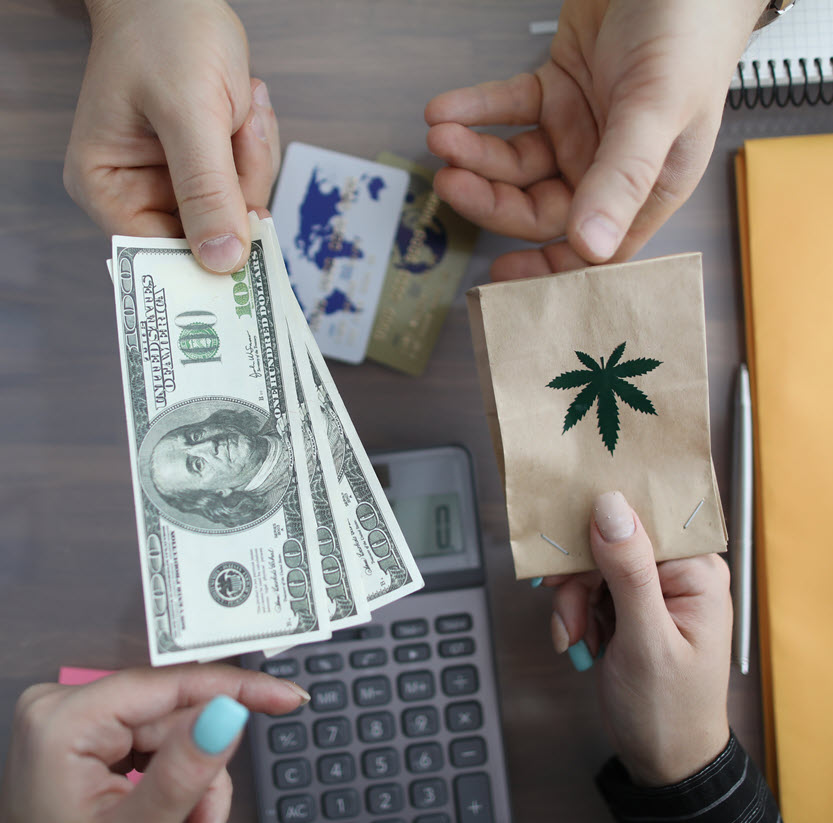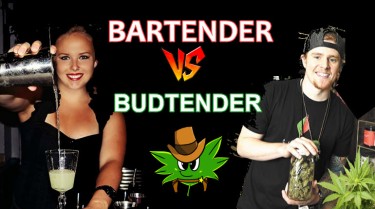
What are the top 5 questions budtenders are asked most frequently?
A budtender is the first person any cannabis enthusiast can rely on for information or answers to questions about cannabis strains. The cannabis retail and product experience is becoming more complex every day; A cannabis bartender is on hand to ensure you make the right decisions while selecting the right cannabis strains. With hundreds of new cannabis and hemp products hitting shelves every year, it’s becoming increasingly difficult to separate the good stuff from the fringe.
Cannabis budtenders are similar to coffee shop baristas. Both are experts in the product they offer (cannabis) or serve (coffee). Your dispensary’s budtender is the closest thing you can to a specialist you can consult for free to help you choose the best products for a healthy cannabis experience.
A budtender’s role as the first port of call in a cannabis store is to help customers purchase the right cannabis products. Oftentimes, pharmacy customers, particularly patients being treated with medical marijuana for the first time, walk into a store confused and don’t know what to order. A budtender’s job is to share valuable knowledge about each product to help the consumer make informed decisions.
In the United States, there are hundreds of budtenders in every legal state. This number is expected to increase in the years to come as the industry grows and changes.
5 popular questions budtenders get asked
Budtenders know more about the best cannabis products than the average connoisseur. If you’re at a loss as to what to ask the budtender every visit, we’ve prepared a helpful guide to the top questions to ask a bartender.
What is the difference between CBD and THC?
Almost all budtenders in Canada and the United States have been asked this question. Curious beginners ask for the THC and CBD percentages on each labeled product. And want to know the differences between both cannabinoids. If you are interested in having a successful budding career, you need to be able to differentiate between THC and CBD.
The chemical tetrahydrocannabinol, or THC, causes the bulk of marijuana’s psychological effects. According to the National Institute on Drug Abuse, it works very similarly to the cannabinoid compounds naturally produced by the body (NIDA).
There are concentrated cannabinoid receptors in parts of the brain involved in thought, memory, pleasure, coordination, and time perception. According to NIDA, THC binds to these receptors, stimulating them and affecting a person’s memory, pleasure, emotions, cognition, attention, balance, and sensory and time perception.
THC is one of several substances in the resin that the buds of the cannabis plant produce. More of these glands are present around the plant’s reproductive organs than any other part.
On the other hand, the most common use of CBD is in medical care. It is a non-psychoactive cannabinoid for patients seeking relief from pain, inflammation, anxiety and convulsions, especially epilepsy; a budtender can suggest products with high concentrations of CBD. In layman’s terms, THC gets you high and elated, while CBD leaves you relaxed and calm.
What do indica, sativa, and hybrid cannabis mean?
Indica, sativa and hybrid are commonly used words in the cannabis space. Sativa is a cannabis strain that offers a more energetic effect on the body and mind. At the same time, indica is a class of cannabis plants thought to possess more delicate characteristics. Most cannabis products contain a mix of both, and the plants are designed to complement each other for the intended results.
Budtenders explain that cannabis has strains just like any other plant or fruit. For example, there are more than three varieties of tomatoes, including cherry, heirloom, and plum.
What are the legal limits for using medicinal cannabis?
A patient may have concerns about legal restrictions after deciding to purchase their favorite cannabinoid product. To let customers know how and when it is safe to use medicinal cannabis, budtenders should be familiar with the regulations in their jurisdiction. Patients should be informed of the legal restrictions each state currently has on the use of cannabis while driving.
First-time users may need to be informed of the permitted possession quantities and where to take their medication. Keeping this type of information in accessible brochures or posters that can be easily distributed to consumers is a brilliant idea. A budtender can be informed of purchase restrictions and compliance rules using high-tech pharmacy POS systems, thereby ensuring that both the patient and the business are operating legally.
Is it convenient to smoke cannabis all the time?
There are different methods of using cannabis. It can be inhaled, swallowed, or absorbed through the skin when applied topically.
Making your choices when it comes to smoking cannabis is important. The cannabinoids in the buds are released through combustion when using traditional smoking methods (blunts, bongs, and pipes). In contrast, when vaporizing, the cannabis is gradually burned until the terpenes and cannabinoids vaporize. Inhaling cannabis is smoother and more enjoyable due to the smooth vapour. You can use an herbal vaporizer to vaporize cannabis flower or oils, distillates, and rosin if you want to keep a more natural method.
How do I measure my edibles?
The potency of edibles varies significantly from one product to another. A budtender should advise patients to use edibles sparingly. Many variables come into play when determining a patient’s ideal edible dosage; However, most pharmacies advise starting with 10 milligrams. It’s important to educate people to read labels and follow recommended consumption guidelines.
Patients should refrain from eating edibles when hungry as they may increase their dosage. Everyone’s tolerance to THC is different; Therefore, it is important to emphasize that beginners should start with small dosages. Additionally, a savvy bartender will not forget to let customers know that they must wait at least 30 minutes to an hour before using any additional products.
bottom line
There are dozens of other questions you could ask a bartender. Some ask about growing the products or the right dosage of a product. At the same time, others want to know which products work best for them. Whenever you feel overwhelmed by the different types of products or information on a product’s label, look around for a budtender and you’ll find answers to whatever is bugging you.
BUDTENDER OR BARTENDER, READ MORE..

BUDTENDER OR BARTENDER, WHAT IS THE BETTER JOB?

Post a comment: